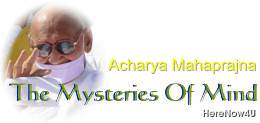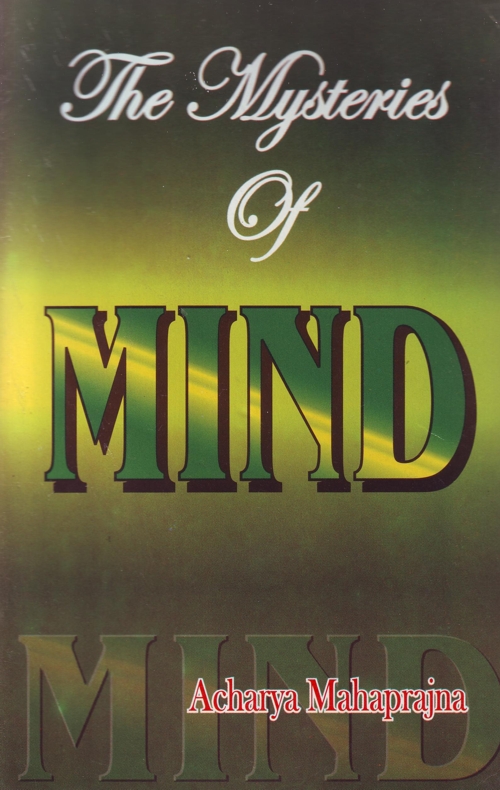
Once a traveller came across a demon. The demon asked him if he could compose a metrical verse containing the phrase 'What a wonder' as the last phrase of the line of the verse. The traveller who was an intelligent man composed the following lines:
Day by day men pass into the abode of death,
and yet those alive wish to live eternally.
What a wonder!If I were to compose such a verse, I would say:
We possess infinite strength and yet we beg
And show ourselves to be wretched.
What a wonder!
We possess infinite strength and yet we are ignorant of this fact. We are not wakeful because we are lost in passions and, therefore, we show ourselves to be wretched everywhere. We cannot keep sitting continuously even for a single hour. We cannot bear heat. We complain of headache when we sit down to meditate. It is a wonder that in spite of our possessing limitless power we are so wretched. It is a wonder because we are forgetful of the strength we possess. We are unaware of our powers because we are not wakeful. This non-wakefulness is like an iron curtain, which hides our spiritual wealth. We have become cut off from this wealth.
When consciousness is not able to manifest itself, our energy also remains dormant and vice versa. Both are inseparably connected with each other. The progress of the one depends on the progress of the other. In the absence of the manifestation of consciousness, we remain unaware of the vast spiritual wealth we possess and because we are unaware of the energy we possess, we are unable to make use of consciousness. The result is that consciousness has become estranged from energy.
The most important step in sadhana is to unite consciousness with energy. This union is called Yoga. However, it is not possible so far as consciousness remains encircled by ignorance and rooted in the passions. Yoga comes into being as soon as the circle of ignorance is broken.
Pramada (infatuation) has several forms. It produces intoxication or madness in the mind of man. It makes consciousness dormant. It renders energy ineffective.
Sleep is another form of pramada. During the state of sleep, consciousness and energy remain dormant.
Another form of pramada is the rise of passions. In a state of anger, both consciousness and discernment disappear.
Sloth or sluggishness is yet another form of pramada. It results in lack of enthusiasm in spiritual exertion.
People are unenthusiastic in self-exertion or sadhana because they are not self-wakeful. We have, therefore, to bring about a change in our mentality in order to become self-wakeful. In this respect consciousness will be of great help to us. First of all, we have to be aware of the fact that we have an inexhaustible source of energy in us. This awareness will give us the conviction that our energy can be utilized in our spiritual progress. We have to be familiar with the powers we possess before they can be put to use.
There were fourteen purvas (original scriptures of the Jains). They were repositories of knowledge and enlightenment. One of them was entitled Virya Pravada. Its subject matter was the sources and applications of energy. It discussed no other subject. The book is not traceable today. It described the powers inherent in living and non-living or conscious and unconscious beings. Like living beings, non-living beings also possess infinite energy. The book described various kinds of energy possessed by non-living beings. The energy contained in matter, space and time is infinite. The energy possessed by non-living beings can be of great use to living beings also.
I would make a few observations in this connection. Certain places have wonderful energy. One place enlivens the mind. Another saddens it. One place introduces calmness in the mind. Another removes mental restlessness. Yet another place excites the mind and makes it violent. Similarly time has its own energy. What can be done at one time cannot be done at another time. Meditation performed in the morning is more undisturbed than meditation done in the middle of the day. The mind remains more stable in the winter than in the summer. The medical science of Ayurveda prescribes different kinds of medicines according to different seasons. The herb known as haritaki (turmeric) is to be taken for different purposes in different seasons. The energy contained in time can increase or reduce the energy contained in matter.
Matter too has its own energy: Knowledge of this energy is highly beneficial. Spiritual practitioners in the ancient times knew very well which objects were helpful in which kind of sadhana. They knew which materials were helpful in stabilizing meditation, yogic postures and the mind. Unfortunately this ancient wisdom has been lost and practitioners are unable to take advantage of it now.
There are two kinds of energy of the sense organs, actual and potential. We are acquainted with the former but not with the latter. The latter is far greater than the former. We are acquainted with the powers of the sense organs. We see things with the eyes. But the eyes have their own limitations. They can see things up to a certain extent only and that too if there is no obstruction. This is the actual power of the sense of sight. If we could develop the power of sight we might see things situated at a great distance. Television works with such a power. This power can enable us to see things in spite of obstructions. It enables us to see gross as well as subtle things. Acharya Mahaprajna
Acharya Mahaprajna

